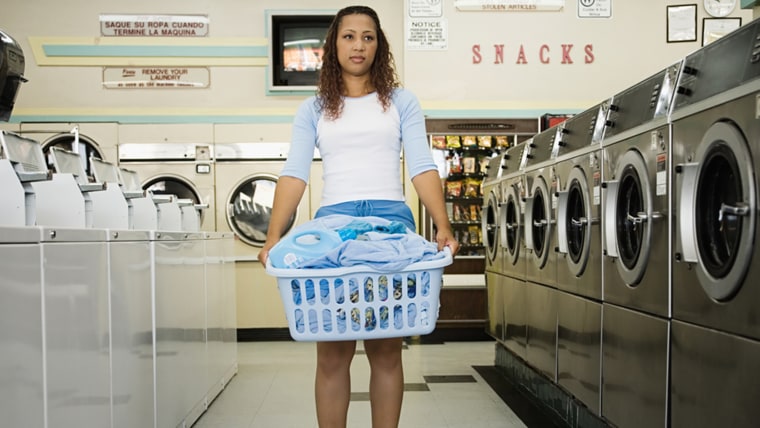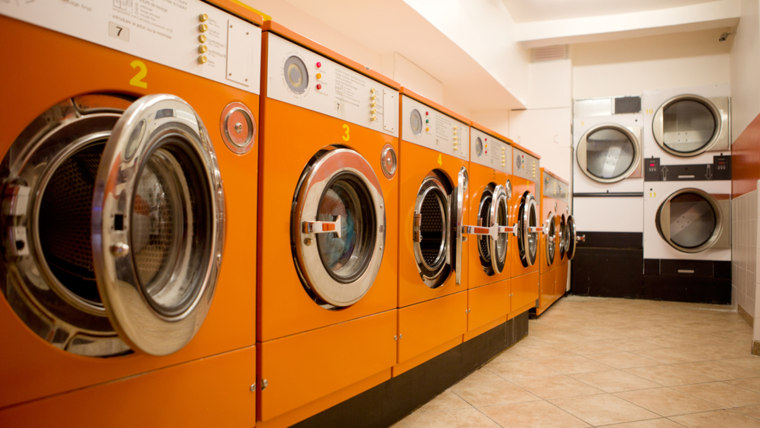Devon Curtin was folding her laundry at the local Laundromat one Sunday afternoon when a familiar song popped on the bleary overhead radio. She found herself suddenly and inexplicably on the verge of tears.
The song was Cyndi Lauper’s “Time After Time.” It was a tune that Curtin, a 36-year-old vintage dealer in Tampa, Florida, enjoys, but not one that has ever held any emotional power over her.
“All of a sudden, everything felt crystallized: loneliness, sadness, loss,” Curtin told TODAY.com.

As soon as she left the Laundromat, she felt okay again. But now, she admits, she dreads laundry day, worried that some darkly cosmic mix of humming machinery and cheesy pop balladry might again move her tears.
RELATED: Face-to-face interaction acts like a 'vitamin' for depression, study suggests
Matthew Tiffany, a 41-year old psychotherapist living in Maine, has had similar experiences, including a recent wash day when he was struck by a bout of vulnerability and sadness when a certain Sheryl Crow song — he can’t even remember the name — came on the system.
“[Laundromats] could be a place where community is built, [but they] end up being loneliness-inducing,” Tiffany told TODAY.
There are perhaps some obvious reasons as to why Laundromats are depressing.
They’re often harshly lit and filled with strangers — weary, industrial where no one really wants to be. One could say the same of train stations, banks and other public places.
But there’s something deeper going on with Laundromats, mental health experts say, that can lead to feelings of depression and anxiety in even the most stoic dryer jockey.
RELATED: How to avoid pilling in yoga pants: 6 athletic wear questions answered
Antoinette D’Orazio, a licensed mental health counselor in Hartsdale, New York, who specializes in depression, has found that Laundromats can often trigger toxic emotions.

“The Laundromat can be fraught with anxiety and negativity,” D’Orazio told TODAY.com. “There’s the anxiety that comes from dealing with unwanted and often unasked-for interaction with the public during an intimate chore [like] folding underwear.”
In some cases, D’Orazio points out, a small enough problem — like no available machines or an idle washer filled with wet laundry — can lead to outsized feelings of stress or an onslaught of bleak thoughts, especially from customers who already struggle with anxiety.
There is also the fact that one is often alone at the Laundromat.
But instead of talking to other customers, people tend to keep to themselves while puttering from machine to machine.
RELATED: Sarah Silverman opens up about depression, panic attacks
“With no one but spinning clothes to interact with, what is there to do with one’s thoughts?” D’Orazio asked.
“If those thoughts are focused on a future with bleak prospects, the result can be hopeless sadness.”
Roger Salerno, a psychoanalyst and professor of sociology at Pace University who has written books exploring urban alienation and estrangement, calls Laundromats “iconic places of loneliness,” in part because they rouse up subconscious longings for domestic stability.
“The cleaning of clothes is something that is supposed to be domestic,” Salerno told TODAY.com.
“In a Laundromat, you have the lack of domesticity for a domestic chore.”
At the root of it all is a feeling Salerno calls “the missing of attachment.
In general, Salerno added, women are more susceptible to this Laundromat-induced loneliness than men, because women have been historically more socialized toward domestic activities and the concept of having a family to care for.
But above all, Laundromats are generally just too impersonal a place to be doing so personal a thing as cleaning one’s clothes.
So, on the next wash day, even if you feel really alone, you’re not.
Chances are the person just a few seats down is feeling just as emotional as you are about that soft rock ballad.